Ukraine Dismisses Putin's Christmas Ceasefire As 'Hypocrisy'
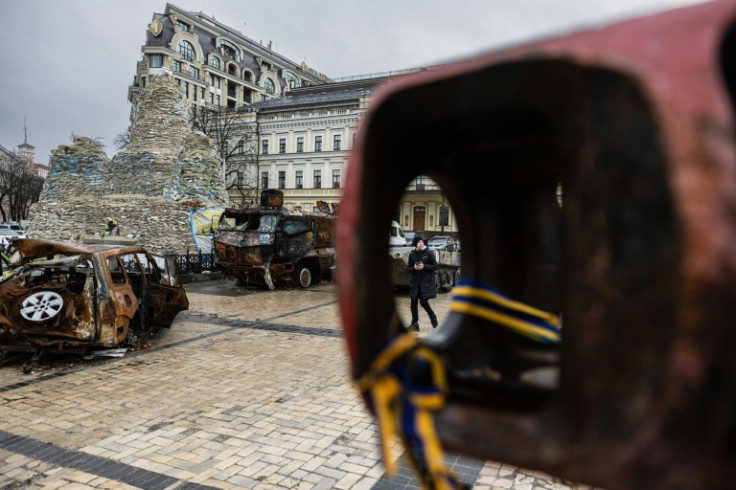
Russian President Vladimir Putin on Thursday ordered a 36-hour ceasefire in Ukraine to run during Orthodox Christmas, a move quickly dismissed by war-battered Kyiv and its allies.
Putin's directive to his troops was announced days after Moscow suffered its deadliest reported loss of the invasion, and as Ukraine's supporters pledged to send armoured vehicles and a second Patriot air defence battery to aid Kyiv.
Both nations celebrate Orthodox Christmas and the Russian leader's order came following ceasefire calls from Turkish President Recep Tayyip Erdogan and Russia's spiritual leader Patriarch Kirill, a staunch Putin supporter.
"Taking into account the appeal of His Holiness Patriarch Kirill, I instruct the defence minister of the Russian Federation to introduce... a ceasefire along the entire line of contact between the sides in Ukraine," said a Kremlin statement.
It will run from midday Friday (0900 GMT), until the end of Saturday (2100 GMT), the Kremlin said.
Kyiv quickly denounced the move.
Russia "must leave the occupied territories -- only then will it have a 'temporary truce'," Ukrainian presidential adviser Mykhailo Podolyak wrote on Twitter. "Keep hypocrisy to yourself."
US President Joe Biden was equally dismissive of Putin's announcement.
"He was ready to bomb hospitals and nurseries and churches" on December 25 and on New Year's Day, he said. "I think he's trying to find some oxygen."
And British Foreign Secretary James Cleverly wrote on Twitter: "A 36 hour pause of Russian attacks will do nothing to advance the prospects for peace."
Since the invasion began on February 24 last year, Russia has occupied parts of eastern and southern Ukraine, but Kyiv has reclaimed swathes of its territory and this week claimed a New Year's strike that killed scores of Moscow's troops.
After votes that were internationally branded as farces, Russia annexed the Donetsk, Lugansk, Zaporizhzhia and Kherson regions -- despite not fully controlling them.
Putin is open to dialogue with Ukraine if Kyiv recognises "the new territorial realities", said the Kremlin, in a summary of his telephone conversation with Erdogan Thursday.
"The Russian side emphasised the destructive role of Western states, pumping the Kyiv regime with weapons and military equipment, providing it with operational information and targets," it added.
The 76-year-old Patriarch Kirill has given his blessing to Russian troops fighting in Ukraine and delivered heavily anti-Western and anti-Kyiv sermons throughout the conflict.
Kirill made his ceasefire appeal "so that Orthodox people can attend services on Christmas Eve and on the day of the Nativity of Christ", he said on the church's official website Thursday.
The Kremlin's decision to send troops into Ukraine resulted in many clerics who had continued to remain loyal to Kirill turning away from Moscow.
In May, the Moscow-backed branch of Ukraine's Orthodox Church severed ties with Russia, citing his lack of condemnation of the fighting.
News of Putin's ceasefire order came as Germany and the United States pledged to provide additional military aid for Kyiv, with Biden saying the promised equipment comes at a "critical point" in the war.
Washington and Berlin said in a joint statement that they will respectively provide Kyiv with Bradley and Marder infantry fighting vehicles.
And "Germany will join the United States in supplying an additional Patriot air defence battery to Ukraine," the statement said, doubling the number of the advanced systems that have been promised to Kyiv.
Germany's Chancellor Olaf Scholz has faced renewed calls to deliver Leopard light tanks, long sought by Kyiv, after French President Emmanuel Macron announced the delivery of French-made AMX-10 RC light tanks to Ukraine.
Macron's announcement on Wednesday made France the first Western country to announce the delivery of such weapons to Ukraine.
Putin's ceasefire order came a day after Moscow lifted its reported toll in its worst single reported loss from a Ukrainian strike to 89 dead.
The deadly Makiivka strike came after months of discontent within Russia towards the military following a series of battlefield defeats and a hugely unpopular mobilisation drive.
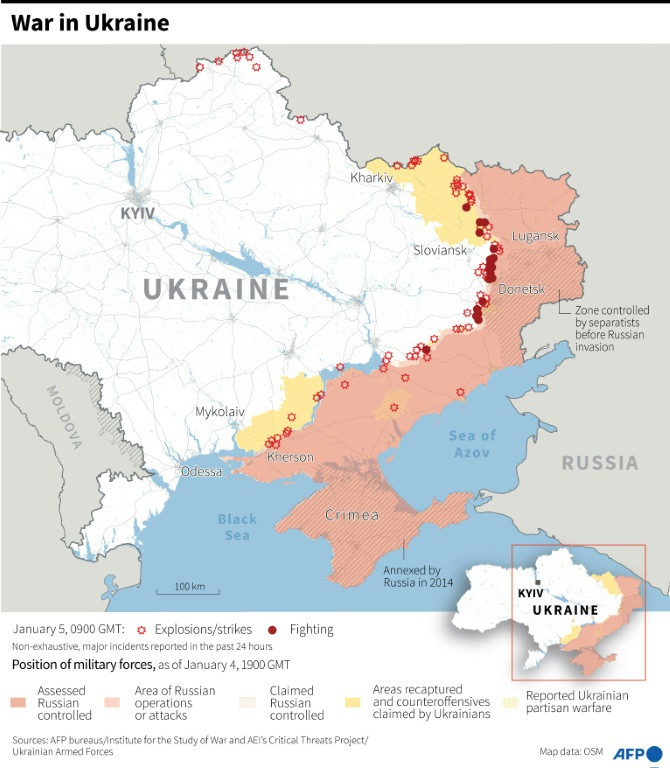
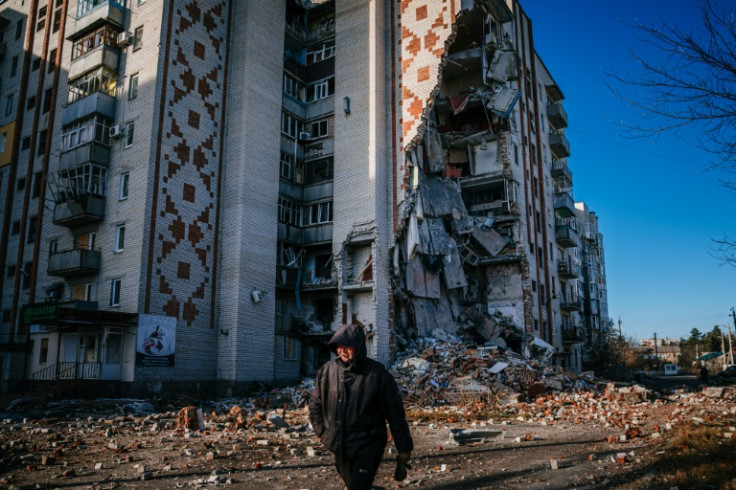
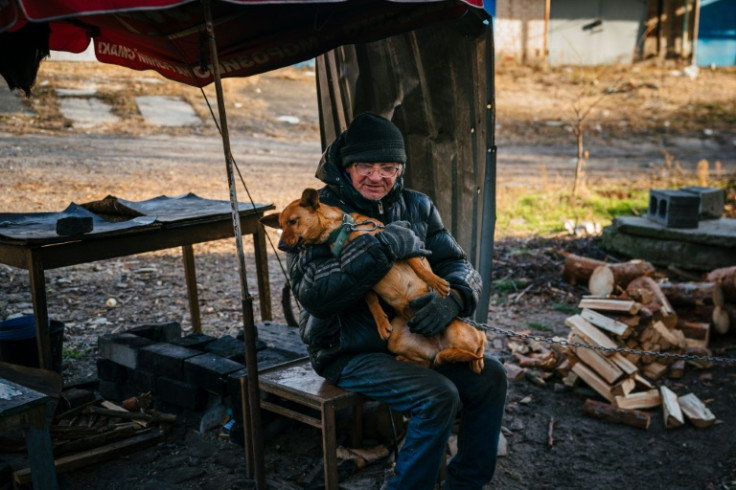
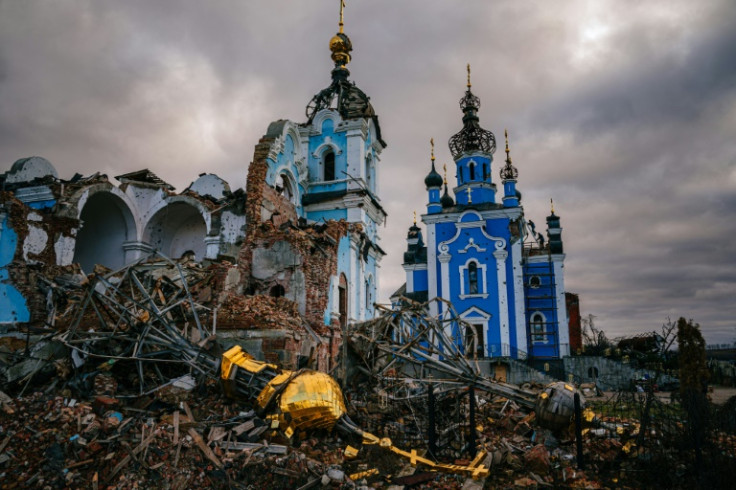
© Copyright AFP 2025. All rights reserved.





















